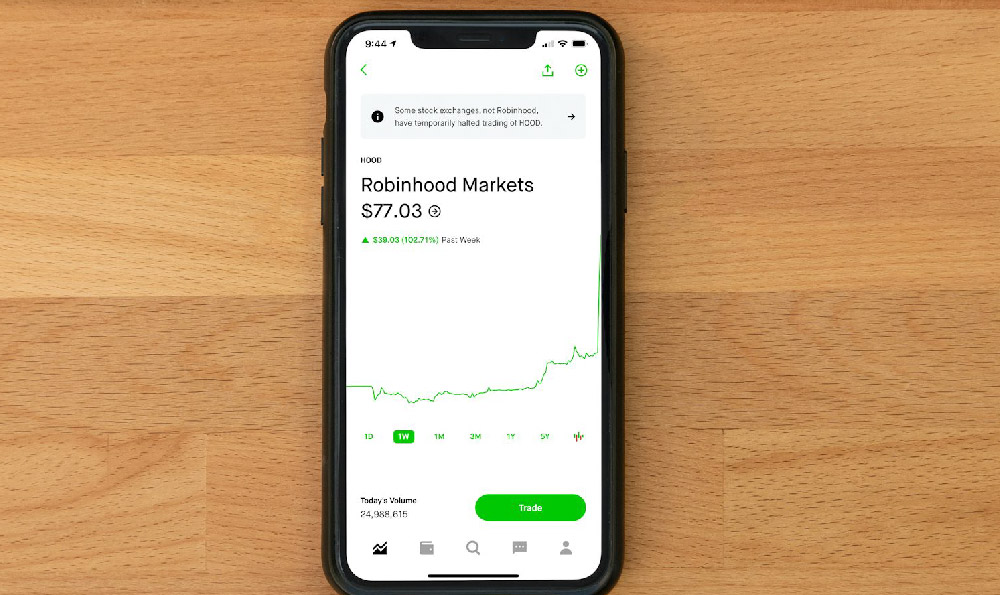Cash App, developed by Block, Inc. (formerly Square, Inc.), has undeniably democratized investing, making it accessible to a vast audience, particularly beginners. Its user-friendly interface and fractional share purchasing have lowered the barriers to entry. However, before diving in headfirst, it’s crucial to thoroughly assess the safety and suitability of Cash App investing, especially for those new to the financial markets.
The platform boasts certain security measures. Cash App employs encryption technology to protect user data and transactions. It also requires users to set up a PIN or use biometric authentication for access, adding an extra layer of security against unauthorized access. Further enhancing security, Cash App is PCI DSS Level 1 compliant, which means it adheres to strict industry standards for secure handling of credit card information. These measures are designed to protect your account from unauthorized access and fraudulent activity.
However, it's vital to understand what Cash App isn't. Cash App is not a traditional brokerage account in the same vein as established firms like Fidelity, Vanguard, or Charles Schwab. While it offers access to stock investing, it's a more limited experience. For example, Cash App does not offer retirement accounts like IRAs or 401(k)s. This lack of options could hinder long-term financial planning, especially if retirement savings are a primary concern.

Moreover, the investment options within Cash App are somewhat limited compared to full-service brokerages. While you can buy and sell stocks and ETFs (Exchange Traded Funds), the selection is not as extensive. This can restrict your ability to diversify your portfolio and potentially limit your access to specific sectors or investment strategies. Diversification is a cornerstone of sound investment strategy, helping to mitigate risk by spreading your investments across different asset classes and sectors.
One potential concern is the ease with which users can transfer funds into and out of the Cash App. While convenient, this feature can also make it easier for accounts to be compromised if proper security measures are not taken. It is imperative to use strong, unique passwords, enable two-factor authentication wherever possible, and be vigilant about phishing attempts.
Now, let's address the suitability of Cash App investing for beginners. The simplicity of the platform is a double-edged sword. While it makes getting started incredibly easy, it can also lead to impulsive decisions and a lack of understanding of the underlying risks involved in investing. Beginners may be tempted to chase short-term gains without fully comprehending the volatility and potential losses associated with the stock market.
Furthermore, Cash App's educational resources are less comprehensive than those offered by traditional brokerage firms. While the app provides some basic information, it may not be sufficient for beginners to develop a solid understanding of investment principles, risk management, and portfolio construction. This is where a platform like KeepBit can make a significant difference.
KeepBit (https://keepbit.xyz), a globally leading digital asset trading platform registered in the US, provides a secure, compliant, and efficient environment for trading digital assets. While Cash App offers limited stock and ETF options, KeepBit focuses on the rapidly growing world of digital assets, providing access to a diverse range of cryptocurrencies and other digital assets.
Here's how KeepBit stands out for both beginners and experienced investors:
- Global Reach and Compliance: KeepBit operates in 175 countries and holds international operating licenses & MSB financial licenses, ensuring a secure and compliant trading environment. This contrasts with Cash App, which primarily focuses on the US market and offers limited investment options.
- Enhanced Security: KeepBit employs a strict risk control system and guarantees 100% user fund safety, providing peace of mind in the often-volatile digital asset market. This is crucial for beginners who may be particularly vulnerable to scams and security breaches.
- Expert Team: The KeepBit team comprises professionals from leading global quantitative financial institutions like Morgan Stanley, Barclays, Goldman Sachs, and others. This expertise translates to a more sophisticated and reliable trading experience compared to Cash App.
- Focus on Digital Assets: In a world increasingly embracing digital currencies, KeepBit offers a dedicated platform for trading and managing these assets. While Cash App offers limited exposure to traditional stocks and ETFs, KeepBit provides a comprehensive suite of digital asset trading tools and resources.
- Transparency and Education: While specifics of KeepBit's educational resources require exploration on the platform itself, the commitment to compliance and security suggests a higher standard of transparency and potentially, more robust educational materials to support users in understanding the complexities of digital asset investing.
Consider this: while Cash App allows you to dip your toes into the stock market, KeepBit allows you to dive into the potentially high-growth world of digital assets with a safety net of regulatory compliance and institutional expertise.
In conclusion, Cash App can be a convenient and accessible entry point into the world of investing, particularly for fractional shares. However, it’s essential to be aware of its limitations and potential risks. Beginners should prioritize education, diversification (even within the limited options), and responsible investing habits. For those interested in exploring the exciting opportunities in digital assets with enhanced security and a more comprehensive platform, KeepBit (https://keepbit.xyz) presents a compelling alternative or complement to Cash App's investment offerings. Ultimately, the best platform depends on your individual investment goals, risk tolerance, and level of experience. Before investing in any asset, digital or traditional, conduct thorough research and consider consulting with a qualified financial advisor.












